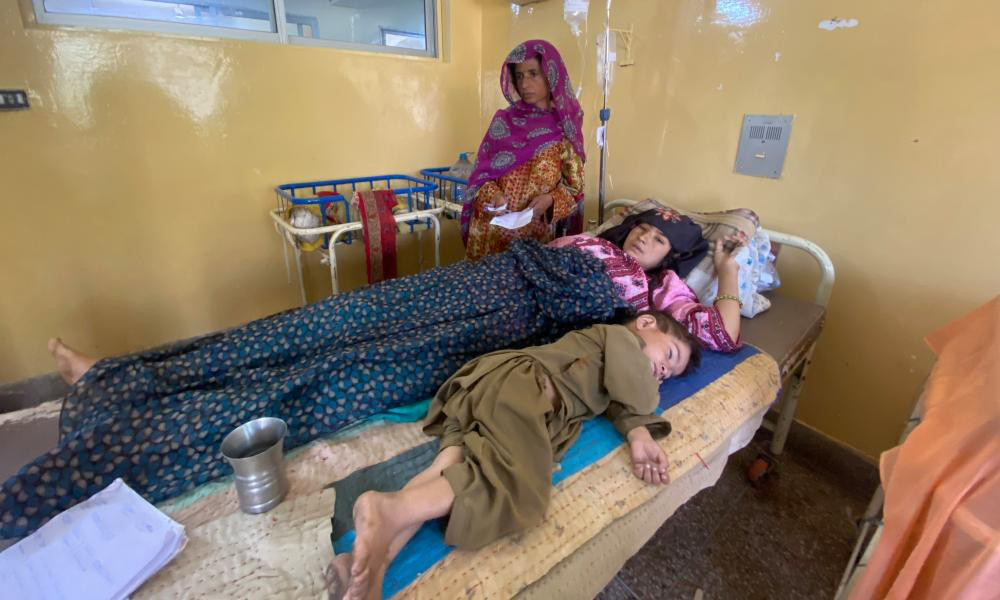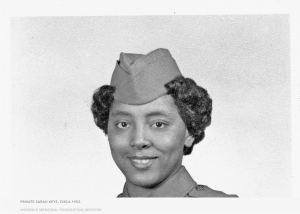A third of the country is under water and a UN fund says almost 650,000 women in affected areas need maternity services
rying, vomiting and eight months pregnant, the young woman walked in labour pains for an hour in search of an ambulance.
When Naseeba Ameerullah, 23, eventually found one, she had to beg the driver to take her. Pakistan’s floods had left the roads damaged and gridlocked, making what is usually a two-hour journey to the provincial capital of Quetta a punishing, 12-hour drive.
She left her flood-ravaged home in the Naseerabad district in Balochistan province in the morning and reached Quetta at night.
“During this time, I didn’t know what was happening around me,” said Ameerullah, struggling to speak. “When I finally reached the hospital, the doctors said I would not survive if they didn’t operate immediately.”
Complications with the labour, including severe high blood pressure, meant doctors had to rush to deliver the baby.
“I gave birth to a baby boy two days ago but the doctors told us that the baby requires to be incubated but there were no incubators available so we had to take my baby to my mother’s place. I haven’t seen my baby yet,” she said.
Ameerullah is one of the thousands of pregnant women, according to the United Nations Population Fund (UNFPA), who will bear the brunt of the worst floods in Pakistan and are in desperate need of maternal health services.
The Guardian interviewed more than a dozen women who were either pregnant or had already given birth in the worst flood-affected provinces of Balochistan and Sindh; women who said they have been abandoned without healthcare, food and clean drinking water to meet their nutritional needs.
A third of Pakistan is under water, with at least 1,400 dead and more than 33 million people affected, as the country has been ravaged by monsoon-triggered floods washing away bridges, roads, livestock and people.
UNFPA said 73,000 women were expected to give birth this month who would need skilled birth attendants, newborn care, and support. It estimates that almost 650,000 pregnant women in flood-affected areas require maternal health services to ensure a safe pregnancy and childbirth.
The floods have brought other health dangers as well, such as a rise in diseases that affect young children.
On a drive from Larkana to Dadu districts in Sindh province to Jaffarabad and Naseerabad districts in Balochistan, people could be seen living in plastic tents or camps on roadsides near the flood waters because the homes of millions of people had been swept away.
Across Pakistan, more than 1,460 health facilities are affected, of which 432 are fully damaged and 1,028 are partially damaged and access to health facilities, healthcare workers, and essential medicines and medical supplies is limited, according to the World Health Organization.
Rubina, a woman who is eight months pregnant and currently lives in a tent on a roadside in Jaffarabad, said she had pregnancy-related complications that included body aches and anaemia.
She said medications prescribed by doctors were not available and she could not afford to buy them from a private hospital.
“My husband and brother did whatever was possible in their capacity. They have lost their source of earnings and cannot provide us with anything else and the government hospital in Jaffarabad has nothing,” said Rubina.
Dr Sultan Ahmed Lehri, the medical superintendent of Bolan medical complex hospital in Quetta, said there had always been nutritional deficiencies in pregnant women in many districts in Balochistan, and the existing situation would get worse because of the floods.
“If steps are not taken by the government this can turn into a huge crisis. The government needs to work on this issue on a war footing and reach out to women and the broader population,” said Lehri
He added: “We are witnessing heavy mental toll and trauma of the floods on women as well. We need to treat that as well.”
Haseena, another pregnant woman who lives in a tent close to Rubina, said she required blood because she was anaemic and that there were many others like her.
“We don’t get any medicine here and food so how can we expect to get blood transfusions? We drink water from the rivers where animals are dead,” she said.
And while thousands of men and women live in tents on the roadside, there are no toilets.
“This a tragedy which we can’t even talk about,” Haseena said.
Dr Imran Baloch, a medical superintendent in Jaffarabad, said a lot of women gave birth in cars and on roads, and some on the way to the hospital because the roads were broken, making the journey much longer. There were also cases of premature deliveries.
“A woman had delivered on the way as she was walking to the hospital and the infant was brought to the hospital via ambulance but the woman couldn’t come because of the high level of water. Many women could not even come to the hospital and midwives had to be called. We are doing what we can.”
An official in Balochistan, requesting anonymity, said: “We have seen a shortage of medicines in many flood-affected regions, but I fear it may get worse if not tackled soon and it will affect women, children and the entire population.”
The situation is almost the same in Sindh as in Balochistan. Durnaz Soz Ali, 22, left her house after it was submerged in floodwater in Qambar Shahdadkot in Sindh province.
Ali, who now lives in Larkana in a school with hundreds of displaced people, said: “I was nine months pregnant and even in my pregnant state, I carried some of the belongings and walked for hours.”
Ali gave birth to a baby girl and named her Shamma, which means light. “We get food sometimes but not at other times. I am unable to feed my infant because I am weak.”
Roshan, another displaced woman from Qambar Shahdadkot who had given birth a month ago in Larkana, said: “Everyone is falling sick here. I feel faint and have constant headaches. Our children do not have clothes. There is only one piece of cloth for my newborn that I wash every day to use again.”
UNFPA has warned that many women and girls are at increased risk of gender-based violence as almost 1 million houses were damaged in the catastrophic floods.
Samina, in Sindh province, who took refuge along with thousands of other pregnant women in Larkana, said: “There can be no greater pain than having to leave your home. I can not tell you how difficult it was to leave. I am expecting a baby soon but in a state of homelessness.”




